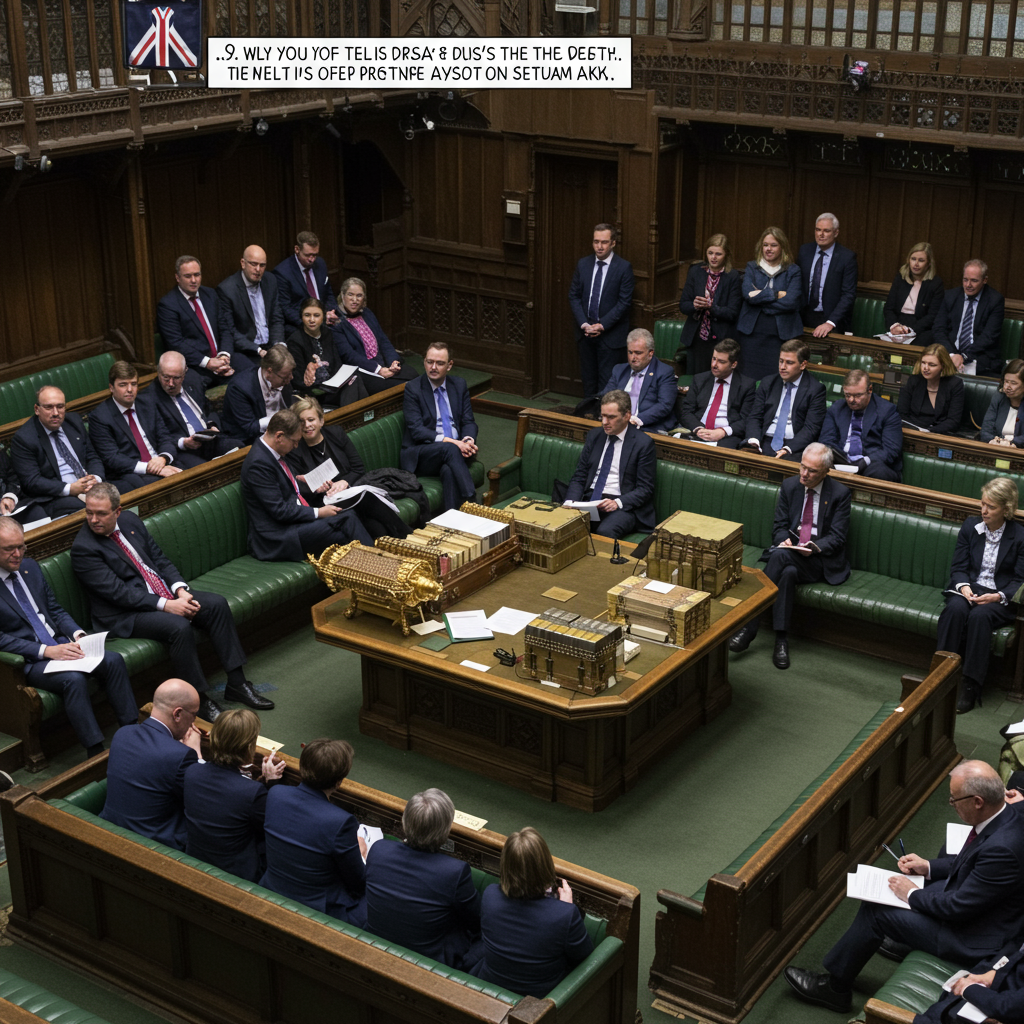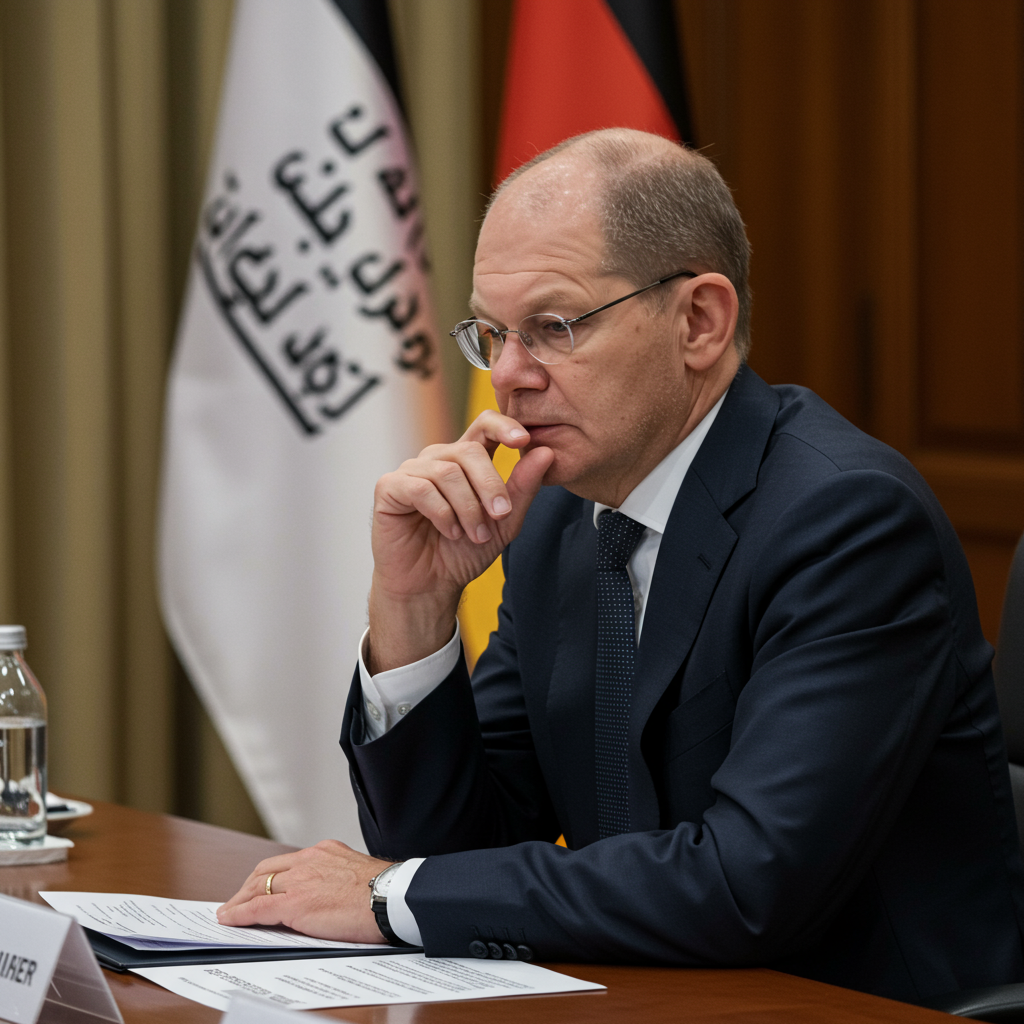The fragile ceasefire between Iran and Israel hangs precariously, viewed by many experts less as an end to hostilities and more as a temporary pause. Despite declarations of calm, the underlying dynamics suggest that key figures, particularly Israeli Prime Minister Benjamin netanyahu, may see continued conflict not as an obstacle, but as a strategic advantage. This perspective, echoed by some analysts comparing it to tactics used by leaders like Russia’s Vladimir Putin, casts a long shadow over prospects for lasting peace in the volatile Middle East. Understanding the motivations driving this instability is crucial to assessing the likelihood of renewed escalation.
The Architecture of Instability
The recent agreement between Iran and Israel was reportedly verbal, inherently lacking the formal structure and verification mechanisms that could lend it durability. On both sides, powerful, hardline elements remain in control. While Washington may promote peace efforts, the deeply entrenched positions and perceived strategic necessities of Jerusalem and Tehran make genuine de-escalation challenging. The human cost of the recent conflict is already devastating, with hundreds dead, thousands injured, and millions traumatized. Yet, the factors that ignited the latest round of fighting appear unresolved.
A central contention among some commentators is that Prime Minister Netanyahu views ongoing conflict as politically beneficial. For those who hold this view, the idea that Netanyahu is finished fighting, even if Iran’s nuclear facilities suffered significant damage, seems naive. While reports suggest Iranian nuclear sites were “severely damaged,” their fundamental nuclear expertise and any existing enriched uranium stockpiles likely remain. Any perceived move by Iran towards rebuilding capabilities could easily trigger another Israeli military response.
Netanyahu’s Political Calculus
Prime Minister Netanyahu’s strategic decisions are seen by some analysts as deeply intertwined with his political survival. Reports suggest he might be considering a snap election, potentially hoping that military actions against Iran could bolster his image and distract from domestic challenges. These challenges notably include scrutiny over his government’s handling of the October 7, 2023 attacks and the ongoing efforts to secure the release of hostages held by Hamas.
Furthermore, Netanyahu faces long-standing legal issues. An Israeli court recently granted a request from his legal team to delay scheduled hearings in his corruption trial, citing classified security and diplomatic grounds. This delay was based on reasons presented by Netanyahu himself, the head of Mossad, and the military intelligence chief, deemed sufficient by the court to cancel a week’s proceedings. Former US President Donald Trump publicly called for the case against Netanyahu to be dropped or pardoned, labeling it a “witch hunt” and describing Netanyahu as a “Great Hero” critical for negotiations with groups like Hamas and countries like Iran. Netanyahu is indicted on charges including bribery, fraud, and breach of trust, which he denies, portraying the trial as a politically motivated effort to remove him. His lawyers have previously sought postponements, arguing his focus was needed on pressing security issues, including the situation post-ceasefire with Iran and fighting in Gaza. The court’s decision to accept the delay after hearing from senior security officials underscores the complex interplay between Netanyahu’s political standing, legal challenges, and his role in national security decisions.
For some observers, the pattern of Netanyahu’s actions points towards a preference for continuous military engagement. Since unilaterally dismantling a Gaza ceasefire in March 2024, his government has pursued relentless pressure on Palestinian territories. This has included reports of significant violence against civilians in Gaza and the West Bank, with conditions in areas like Rafah described as continuously dire. Bombings in Lebanon and Syria have also occurred with regularity. This persistent application of military force suggests that a similar approach of sustained pressure and intermittent strikes may be applied to Iran.
The “Forever War” Strategy
Critics argue that Benjamin Netanyahu is not adverse to the concept of “forever wars,” in stark contrast to the public weariness seen after prolonged Western engagements in places like Afghanistan and Iraq. For Netanyahu, peace is perceived by these critics as a threat to his power base. A state of ongoing conflict, they argue, keeps him at the center of national attention, justifies maintaining leadership through crises, and potentially shields him from legal repercussions. Like other authoritarian-leaning leaders, he may view perpetual war as a means to consolidate domestic support and undermine political opposition. This continuous state violence can have corrosive effects on democratic norms, legal processes, and effective governance.
Regarding Iran, the objective is framed by some not as promoting freedom for the Iranian people, but as ensuring a permanently weakened, divided, and militarily degraded nation. This, it is argued, would guarantee that Iran poses no significant challenge to Israel’s strategic interests and remains vulnerable to punitive actions at will. Achieving this might involve maintaining dominance over Iranian airspace, alongside a sustained campaign of covert cyber-attacks, sabotage, and targeted assassinations. This calculation suggests a long-term strategy of containment through persistent, low-to-medium intensity conflict.
Internal Iranian Dynamics and Reactions
Within Iran, the recent attacks have had a complex impact. While some initial reactions among dissidents reportedly welcomed the targeting of Revolutionary Guard Corps top brass, the escalation, civilian casualties, and perceived harshness of the strikes shifted sentiment for many. A strong sense of national pride and unity, centered around the concept of “watan” (homeland), emerged across different social factions. This period reportedly saw displays of solidarity among ordinary citizens.
Crucially, the response from Western nations has significantly shaped Iranian public opinion, even among those critical of their own regime. Many Iranians viewed the perceived support or silence from European countries regarding Israel’s actions as deeply hypocritical, especially when contrasted with the strong condemnation of Russia’s actions in Ukraine. This double standard, coupled with the devastation in Gaza, reinforced a perception that Western powers value Iranian lives less. This perceived injustice has fueled anger and significantly increased support for the idea of Iran developing nuclear weapons, even among ordinary citizens. Previously a fringe idea, it is now gaining traction as the only reliable deterrent against external aggression, with proponents pointing to countries like North Korea as examples. The West’s perceived role in the conflict has also damaged its credibility as a potential mediator.
The ruling regime in Tehran, though reportedly rattled by attacks on prominent figures and talk of regime change, did not collapse. Instead, the Israeli strikes may have paradoxically boosted patriotic sentiment and public support for the government among some segments of the population. In response to perceived threats and internal pressure, the government has reportedly launched a security crackdown, leading to hundreds of arrests and executions of alleged spies.
Despite external pressure, Iran has maintained its stance on certain issues. The attacks were framed by Tehran as based on a false premise, citing a lack of backing from US intelligence or the UN for Netanyahu’s claim that Iran was actively weaponizing its nuclear program. Iran seeks relief from US sanctions but remains unwilling to discuss its future nuclear activities under duress. Cooperation with International Atomic Energy Agency inspectors has reportedly been suspended. Rejecting the idea of Israeli containment, Tehran may eventually revert to asymmetrical conflict and rekindle regional proxy wars as a means of pushing back.
The Nuclear Question and Sanctions Context
The potential for Iran to pursue nuclear weapons more aggressively is a significant concern, exacerbated by years of failed diplomacy and pressure campaigns. The Trump administration’s “maximum pressure” policy, implemented after withdrawing the US from the 2015 nuclear deal (JCPOA) in 2018, aimed to prevent Iran from acquiring nuclear arms, curb its missile program, and halt regional destabilization. However, experts argue this strategy backfired. Reports from the IAEA indicate Iran significantly increased its enriched uranium stockpile after US sanctions were reimposed. Iran has also continued developing its missile capabilities. Regionally, Iran’s influence persists despite domestic opposition in some areas.
The harsh sanctions have inflicted severe economic hardship on the Iranian population, causing contraction, job losses, and hindering the country’s ability to manage health crises like the Covid-19 pandemic. The US has been criticized for actions perceived as blocking humanitarian aid and international loans. This intense pressure and isolation may have empowered hardliners within Iran, turning previously fringe ideas, such as withdrawing from the Nuclear Non-Proliferation Treaty (NPT), into serious policy considerations. Iranian officials have warned they could abandon both the JCPOA and the NPT if pushed too far, raising the stakes considerably and increasing the risk of military confrontation.
The Tumultuous Role of Donald Trump
Former US President Donald Trump’s involvement in the situation is seen by some commentators as having further complicated an already volatile environment. Described as impulsive, uninformed, and driven by personal ambition (including perceived desires for a Nobel Peace Prize), Trump’s interventions are argued to have made the situation more dangerous and made it harder for the US to disengage from future conflicts. His actions against Iran have been characterized by some as a “sneak attack” violating international law, potentially setting a precedent for other states to justify illegal aggression.
Furthermore, by continuing to support Benjamin Netanyahu, labeled by critics as an “alleged war criminal,” Trump is seen by some as potentially exposing himself to future prosecution by the International Criminal Court. Trump’s approach during his presidency, marked by a rejection of multilateral diplomacy, alienating traditional allies, relying on inexperienced envoys, and disregarding expert advice, has led some to view the United States under such leadership as an unreliable partner in resolving complex international crises. His attempt to achieve “instant glory” through dramatic interventions is seen as having failed, ultimately contributing to increased misery, destruction, and insecurity in the region.
The Folly of Force
Many observers lament the apparent futility of the recent military exchange. It is argued that the conflict achieved little positive outcome, primarily resulting in death, injury, and increased instability. The historical pattern suggests that brute force rarely leads to lasting peaceful solutions and more often inflames existing problems. This appears to be the case here, where military action seems to have entrenched positions, deepened distrust, and potentially pushed Iran closer to steps the international community sought to prevent. For commentators like Simon Tisdall, the unwillingness of the leaders involved to learn this lesson is frustrating. The prospect of breaking this cycle may depend on the emergence of stronger, more principled diplomatic efforts capable of challenging the current trajectory. The damage to the West’s perceived moral standing, particularly in the Global South, due to perceived double standards and an “imperial mindset,” may prove difficult to repair, regardless of future political shifts in the region.
Frequently Asked Questions
Why is the recent Iran-Israel ceasefire unlikely to last?
The ceasefire is considered fragile primarily because it is reportedly a verbal agreement lacking formal structure or verification. Underlying issues, including Iran’s nuclear program, ongoing regional proxy conflicts, and the political motivations of leaders like Benjamin Netanyahu, remain unresolved. Some analysts believe Netanyahu strategically benefits from ongoing conflict for political gain and distraction from domestic issues, including legal challenges.
What are Prime Minister Netanyahu’s motivations regarding ongoing conflict?
Commentators suggest Netanyahu may view conflict as a means to boost domestic political support, consolidate power, and distract from challenges like past security failures and his corruption trial. Some argue he sees war as a way to potentially avoid legal consequences. His pattern of military action, particularly since early 2024, is cited as evidence of a preference for using force to achieve strategic goals, including maintaining pressure on adversaries like Iran.
How has the conflict impacted public opinion within Iran?
While initial reactions were varied, the recent Israeli attacks, particularly those causing civilian casualties, have reportedly fostered a strong sense of national unity and patriotism in Iran. The perceived hypocrisy of Western nations’ responses, contrasting their stance on this conflict with that on Ukraine, has significantly eroded trust in the West, even among critics of the Iranian regime. This distrust has, for some, increased the appeal of Iran developing nuclear weapons as a necessary deterrent.



